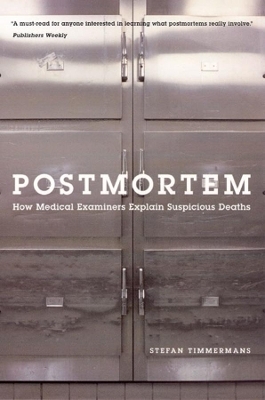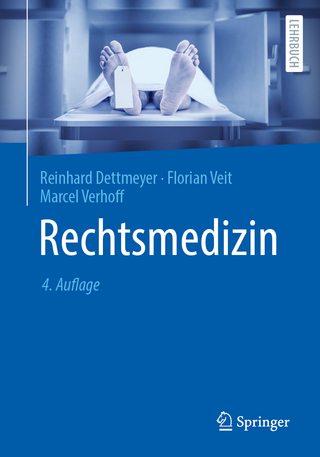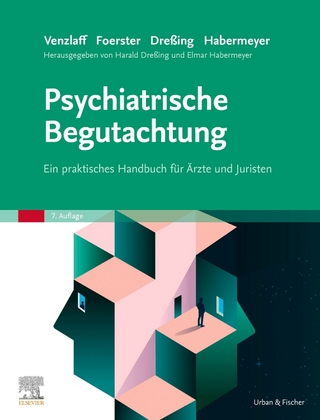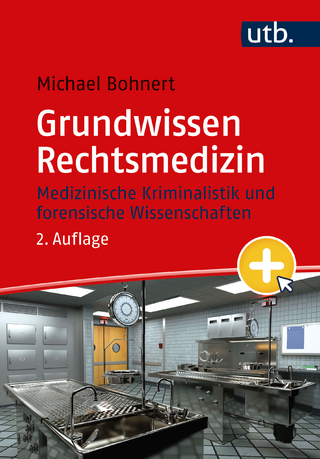
Postmortem
How Medical Examiners Explain Suspicious Deaths
Seiten
2007
University of Chicago Press (Verlag)
978-0-226-80399-9 (ISBN)
University of Chicago Press (Verlag)
978-0-226-80399-9 (ISBN)
Delves into the world of medical examiners to uncover the intricate web of social, legal, and moral issues in which they operate. This work reveals how medical examiners speak to the living on behalf of the dead.
As elected coroners were replaced by medical examiners with scientific training, the American public became fascinated with their work. From the grisly investigations showcased on highly rated television shows such as "CSI" to best-selling mysteries that revolve around forensic science, medical examiners have never been so visible - or compelling. They, and they alone, solve the riddle of suspicious death and the existential questions that come with it. Why did someone die? Could it have been prevented? Should someone be held accountable? What are the implications of ruling a death a suicide, a homicide, or an accident? Can medical examiners unmask the perfect crime? "Postmortem" goes deep inside the world of medical examiners to uncover the intricate web of social, legal, and moral issues in which they operate. Stefan Timmermans spent years in a medical examiner's office following cases, interviewing examiners, and watching autopsies. While he relates fascinating cases here, he is also more broadly interested in the cultural authority and responsibilities that come with being a medical examiner.
How medical examiners speak to the living on behalf of the dead is Timmermans' subject, revealed here in the day-to-day lives of the examiners themselves.
As elected coroners were replaced by medical examiners with scientific training, the American public became fascinated with their work. From the grisly investigations showcased on highly rated television shows such as "CSI" to best-selling mysteries that revolve around forensic science, medical examiners have never been so visible - or compelling. They, and they alone, solve the riddle of suspicious death and the existential questions that come with it. Why did someone die? Could it have been prevented? Should someone be held accountable? What are the implications of ruling a death a suicide, a homicide, or an accident? Can medical examiners unmask the perfect crime? "Postmortem" goes deep inside the world of medical examiners to uncover the intricate web of social, legal, and moral issues in which they operate. Stefan Timmermans spent years in a medical examiner's office following cases, interviewing examiners, and watching autopsies. While he relates fascinating cases here, he is also more broadly interested in the cultural authority and responsibilities that come with being a medical examiner.
How medical examiners speak to the living on behalf of the dead is Timmermans' subject, revealed here in the day-to-day lives of the examiners themselves.
Stefan Timmermans is professor of sociology at the University of California, Los Angeles. He is the author of two previous books, including Sudden Death and the Myth of CPR.
| Erscheint lt. Verlag | 8.5.2007 |
|---|---|
| Reihe/Serie | Fieldwork Encounters and Discoveries |
| Sprache | englisch |
| Maße | 17 x 24 mm |
| Gewicht | 567 g |
| Themenwelt | Sachbuch/Ratgeber ► Gesundheit / Leben / Psychologie |
| Sachbuch/Ratgeber ► Natur / Technik | |
| Studium ► 2. Studienabschnitt (Klinik) ► Rechtsmedizin | |
| Recht / Steuern ► Strafrecht ► Kriminologie | |
| ISBN-10 | 0-226-80399-6 / 0226803996 |
| ISBN-13 | 978-0-226-80399-9 / 9780226803999 |
| Zustand | Neuware |
| Informationen gemäß Produktsicherheitsverordnung (GPSR) | |
| Haben Sie eine Frage zum Produkt? |
Mehr entdecken
aus dem Bereich
aus dem Bereich
Ein praktisches Handbuch für Ärzte und Juristen
Buch | Hardcover (2020)
Urban & Fischer in Elsevier (Verlag)
240,00 €
medizinische Kriminalistik und forensische Wissenschaften
Buch | Softcover (2023)
UTB (Verlag)
29,90 €


